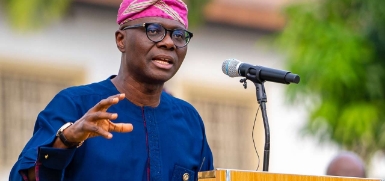Welcome. And thanks for your interest in this competition. In this second edition of our competition, we were thrilled to have received a good number of beautiful entries on the theme: “DIGITAL AUTHORITARIANISM IN NIGERIA”
Here are the top 3 entries for the month of October. Take a look.
Winning Entries
First Place – Chimamanda Ajaegbo
Digital Authoritarianism in Nigeria
According to ERLC by Jackson Thacker, digital authoritarianism is the way many leaders around the world wield the power of the internet and technology to gain or solidify control over the people. A more literal definition is given by Wikipedia who defined it as a state-led surveillance programme with Big data and a new form of credit scoring to influence the behaviour of citizens, companies and other institutions. Digital authoritarianism also known as techno-authoritarianism or IT-backed authoritarianism provides for a plethora of measures undertaken by the government to stifle the civic space and restrict the freedom of the people.
Second Place – Juliet Odalubu
Digital Authoritarianism in Nigeria
According to Wikipedia IT-backed authoritarianism or digital authoritarianism refers to an authoritarian regime using cutting-edge information technology in order to penetrate, control and shape the behavior of actors within society and the economy. According to Jason Thacker (2020),Digital authoritarianism, also known as techno-authoritarianism, is the way that many leaders around the world wield the power of the internet and technology to gain or solidify control over their people. Authoritarianism is not a new concept, but in recent years there seems to be a growing trend of leaders using technology in order to strengthen their ruling power and attain growing influence around the world.
Third Place – Ogonna Onwudiegwu
Digital Authoritarianism in Nigeria
According to ERLC by Jackson Thacker, digital authoritarianism is the way many leaders around the world wield the power of the internet and technology to gain or solidify control over the people. A more literal definition is given by Wikipedia who defined it as a state-led surveillance programme with Big data and a new form of credit scoring to influence the behaviour of citizens, companies and other institutions. Digital authoritarianism also known as techno-authoritarianism or IT-backed authoritarianism provides for a plethora of measures undertaken by the government to stifle the civic space and restrict the freedom of the people.







